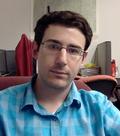Cited By
View all- Venev HGehr TDimitrov DVechev M(2024)Modular Synthesis of Efficient Quantum UncomputationProceedings of the ACM on Programming Languages10.1145/36897858:OOPSLA2(2097-2124)Online publication date: 8-Oct-2024
- Wright CLuján MPetoumenos PGoodacre JErtl MKirsch C(2024)Quff: A Dynamically Typed Hybrid Quantum-Classical Programming LanguageProceedings of the 21st ACM SIGPLAN International Conference on Managed Programming Languages and Runtimes10.1145/3679007.3685063(65-81)Online publication date: 13-Sep-2024
- Yuan CCarbin M(2024)The T-Complexity Costs of Error Correction for Control Flow in Quantum ComputationProceedings of the ACM on Programming Languages10.1145/36563978:PLDI(492-517)Online publication date: 20-Jun-2024
- Show More Cited By



